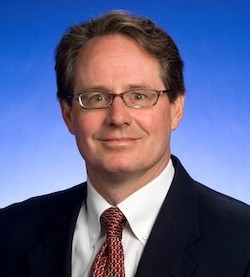
Market structure has become a front-burner issue for many traders, investors, and regulators, as increased complexity and lightning-fast transaction speeds have increased the perceived risk of market disruptions.
Just last week, executives from NYSE Euronext, Credit Suisse, T. Rowe Price and other financial giants discussed market-structure issues at a New York roundtable sponsored by New Jersey Rep. Scott Garrett. Similar gatherings have previously been held by the U.S. Securities and Exchange Commission and private firms such as Rosenblatt Securities.
Structural glitches hold the most direct implications for the shorter-term, active traders who generate the bulk of the market’s trading volume on any given day. For institutional investors who might hold a stock for months or years, it’s a different story.
“When you buy a stock and hang on to it for a long time, what happens in a one-second bound is really not all that important,” said Michael Brakebill, chief investment officer of Tennessee Consolidated Retirement System, which manages about $38 billion.
The indirect costs of market-structure issues are of greater concern for institutional investors. These include a lack of confidence in the markets that reduces trading activity and liquidity, and by extension drives up trading costs.
Within market structure, one hot-button topic is the role of high-frequency traders. Supporters of the methodology say high-frequency traders provide needed liquidity, while detractors say HFT practitioners create trading friction for institutional investors.
“In the long run I probably am more positive on high-frequency traders than others you see in the press,” Brakebill told Markets Media in a May 8 interview. “They perform a function, and over time the market will learn to adjust and have the necessary regulatory and whatever mechanisms needed. There obviously have been situations where moves in markets illustrate how those firms need to be monitored more closely, there’s no doubt about that.”
Other institutional managers have taken similar stances on high-frequency trading, noting that the practice is here to stay and its practitioners needs to be worked with. For these investment officers, there are more pressing areas of concern.
“Specifically in Europe, transaction taxes on equity markets is a concern because I see it as a step backward in market efficiency,” Brakebill said. “Additionally, regulation for financial institutions has decreased the depth and liquidity of fixed-income markets substantially, which we see on our fixed-income desk.”


